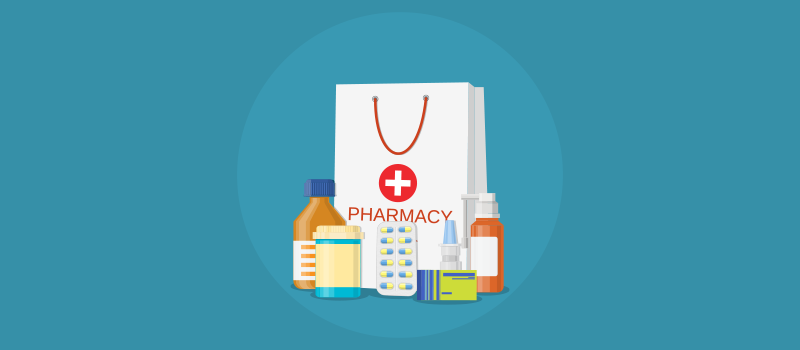Introduction
In today’s digital age, platforms like TikTok, Instagram, and YouTube are filled with self-proclaimed health hacks, many of which involve the “off-label” use of over-the-counter (OTC) medications. Off-label use refers to taking a medication in a way not approved by the Food and Drug Administration (FDA)—whether that means for a different condition, in a different dosage, or via an alternate route of administration. While prescription drugs are often studied for off-label uses under medical supervision, OTC off-label trends are increasingly spreading without the guidance of healthcare professionals. This growing wave of viral misinformation has prompted concern among pharmacists, physicians, and regulatory agencies.
Common Off-Label OTC Uses Trending on Social Media
Social media is awash with creative but often dangerous ways people are using OTC medications for purposes they were never meant to serve. Examples include:
- Diphenhydramine (Benadryl) for sleep or anxiety at doses higher than recommended.
- Loperamide (Imodium) is misused in high doses for opioid withdrawal symptoms.
- Pseudoephedrine is touted as a stimulant or weight loss aid.
- Dextromethorphan (found in cough syrup) is used recreationally for its hallucinogenic effects.
- Antacids or activated charcoal are promoted as detox or hangover cures.
These trends often originate from anecdotal success stories, influencer recommendations, or misinterpretation of scientific data, and can lead to severe health consequences.
Safety Risks of Unintended Medication Uses
The main danger of off-label OTC use lies in the lack of medical oversight. When individuals repurpose medications based on non-professional advice, they risk:
- Overdoses due to unregulated dosing
- Toxic interactions with other medications
- Masking of serious conditions by misusing drugs for symptom relief
- Dependency (e.g., using sleep aids nightly without medical supervision)
- Organ damage, particularly with repeated misuse of substances like acetaminophen or loperamide
OTC medications are assumed to be safe largely because they are accessible, but this safety only holds when used as directed.
Lack of Clinical Evidence for Viral Claims
Many viral health trends rely on anecdotal evidence or misleading interpretations of clinical studies. For example, some claim that dextromethorphan boosts mood or cognition, citing studies on its use in depression, without noting that such use involves prescription combinations and supervision.
Unlike prescription off-label use, which may be supported by peer-reviewed research and ongoing clinical trials, OTC off-label use on social media often lacks any scientific validation. Consumers rarely understand pharmacokinetics (how drugs move through the body) or pharmacodynamics (how drugs affect the body), making these DIY approaches inherently risky.
FDA Position on Off-Label OTC Promotion
The FDA strictly regulates the promotion of both prescription and nonprescription drugs. While off-label prescribing is legal for doctors, it is illegal for companies to market medications for unapproved uses. When social media influencers or content creators with affiliate marketing deals promote off-label uses of OTC drugs, they may be stepping into regulatory gray areas.
The FDA has increasingly issued warnings and initiated public education campaigns to combat misinformation about drug use, including OTC misuse. However, with the decentralized and fast-moving nature of social media, enforcement remains a major challenge.
Critical Evaluation of Social Media Health Claims
Consumers play a critical role in curbing the spread of dangerous health misinformation. When encountering OTC drug advice online:
- Question the source: Is it a licensed healthcare provider or a social media personality?
- Check for evidence: Are claims supported by clinical trials or peer-reviewed studies?
- Look up official guidelines: Trusted sources include the FDA, Mayo Clinic, CDC, or professional pharmacy organizations.
- Consult a pharmacist or doctor before trying any off-label medication use.
Teaching digital health literacy, particularly among teens and young adults—the most active demographic on platforms like TikTok—is essential to combat viral OTC misuse.
Conclusion
OTC medications are designed to be safe and accessible—but only within the boundaries of their intended, label-approved uses. The rise of viral off-label trends on social media blurs those boundaries and invites serious health risks. Without the checks and balances of clinical oversight, off-label OTC use becomes a gamble with potentially life-threatening consequences. In an era where a trending video can reach millions within hours, it’s critical that healthcare professionals, regulatory bodies, and consumers unite in demanding credible, evidence-based health information. Awareness, education, and critical thinking remain our best defenses against the dangers lurking behind the next viral “remedy.”
FAQs:
Is it safe to use OTC medications for purposes other than what’s on the label?
No, using OTC medications off-label without medical guidance can be unsafe and may cause harmful side effects or interactions.
How can I verify if viral health claims about OTC medications are true?
Check trusted sources like the FDA, Mayo Clinic, or consult a pharmacist or doctor for accurate, evidence-based information.
What are the risks of following social media advice for off-label OTC use?
Risks include incorrect dosing, dangerous interactions, masking of serious conditions, dependency, and even overdose.
Where can I find reliable information about proven OTC medication uses?
Look at official drug labels, FDA.gov, Drugs.com, or ask a licensed pharmacist or healthcare provider.
Should I consult a healthcare provider before trying off-label OTC uses I see online?
Yes, always consult a healthcare professional before using any medication off-label to ensure it’s safe and appropriate.






